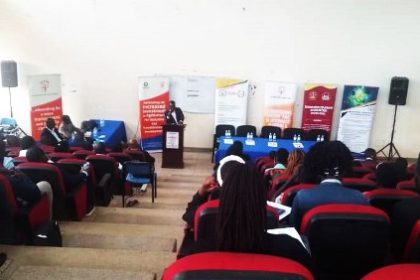African airlines see moderate growth during September

African airlines reported a challenging September with both cargo and passenger demand experiencing significant downward pressures.
According to numbers released by IATA (International Air Transport Association), African airlines registered the fastest growth in freight volumes of any region in the world. Demand increased 2.2pc year on year but this represented a significant slowdown in growth from the 8pc recorded in August.
The industry lobby says African cargo capacity grew 9.4pc year on year with strong trade and investment linkages with Asia and robust economic performance in key regional economies contributing to the positive performance.
While maintaining a positive trajectory, passenger demand during September represented a significant slow-down compared to August. Passenger traffic expanded by just 0.9pc during the month compared to the 4.1pc growth recorded in August.
IATA however sees this as a blip since despite the volatility in the numbers, traffic growth for the third quarter of 2019 maintained a positive pitch of around 3pc nose up year on year.
Capacity moderately rose 2.5pc during September while the passenger load factor (the portion of revenue-generating available seats that were sold to fare-paying passengers) slopped by1.1 percentage points to 71.7pc.
Africa’s share of the global passenger traffic market was 2.1pc while the Asia-Pacific region led the ranks with a share of 34.5pc.
“These are challenging days for the global air transport industry,” says IATA Chief Executive Alexandre de Juniac. “Pressure is coming from many directions. In a matter of weeks, four airlines in Europe went bust. Trade tensions are high and world trade is declining. The IMF recently revised down its GDP growth forecasts for 2019 to 3.0 pc. If correct, this would be the weakest outcome since 2009, when the world was still struggling with the Global Financial Crisis.”
He urged governments to pursue policies that support the industry’s growth rather than weigh it down with opportunistic levies.
“At times like these, governments should recognize the power of aviation connectivity to ignite the economy and drive job creation. Instead, too many governments—in Europe in particular—are fixated on aviation as the goose that lays the golden eggs of taxes and fees. It’s the wrong approach. Aviation is the business of freedom. Governments should harness its power to drive GDP growth, not tie it down through heavy and punitive tax and regulatory regimes,” de Juniac said.

 Standard Bank Group appoints new Chief Executive for Uganda Holdings
Standard Bank Group appoints new Chief Executive for Uganda Holdings
 TradeMark Africa introduces new App to limit EAC trade barriers
TradeMark Africa introduces new App to limit EAC trade barriers
 Employer hiring up during November as Stanbic PMI rises to 53.4
Employer hiring up during November as Stanbic PMI rises to 53.4
 Shell Club rewards first winners with brand new motorbikes in Mbale
Shell Club rewards first winners with brand new motorbikes in Mbale
 CSBAG roots for increased funding for renewable energy
CSBAG roots for increased funding for renewable energy
 Equity walks tried and tested path to deliver solid half-year
Equity walks tried and tested path to deliver solid half-year
